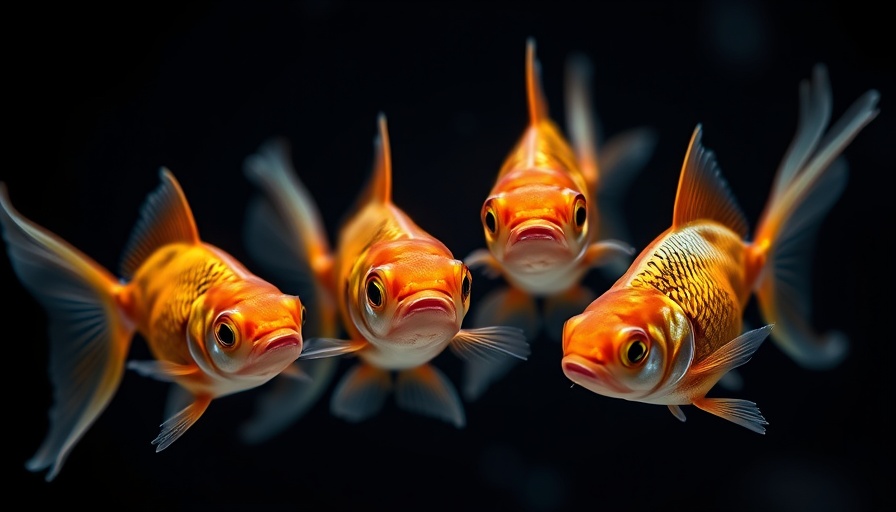
Redefining Fish Intelligence: What We Now Know
In the world of aquatic life, fish have long been dismissed as mere creatures of instinct, with many people believing that they lack the intelligence associated with other animals. A common misconception is that a goldfish like Maurice has a mere three-second memory. However, recent research reveals a remarkable level of cognitive complexity within fish species, prompting a reevaluation of their capabilities. These revelations are not just significant in the realm of animal intelligence, but they also challenge pervasive human biases regarding the hierarchies of life forms.
In 'Are fish smarter than we thought?', the documentary delves into the fascinating world of fish intelligence and communication, sparking a deeper analysis of our understanding of these extraordinary creatures.
Diving Deeper: Communication Among Fish
One of the groundbreaking studies discussed is a test where goldfish distinguished between compositions by Bach and Stravinsky. This ability to identify different musical patterns showcases not only their aural capabilities but suggests a nuanced form of communication among fish species. For instance, the cooing sounds generated by damsel fish during mating seasons further illustrate that fish can convey complex information, challenging the long-held belief that fish are silent beings.
The Evolution of Understanding Fish Behavior
Considering that fish have thrived underwater for over 420 million years, it is evident they possess sophisticated adaptations suited for survival. The studies conducted by scientists at institutions like the University of Oxford emphasize that fish have complex spatial memory systems, enabling them to navigate and understand their environments. Such cognitive behaviors prompt us to consider the varying levels of intelligence and emotional capacity that might exist across different species of fish.
The Quest for an Underwater Emotional Compass
Interestingly, studies have also revealed that fish can experience emotional responses, such as joy or distress, thereby hinting at a more intricate emotional life than previously believed. Research on zebra fish demonstrated that they could empathize with fellow fish in distress, showcasing a budding emotional intelligence that parallels some mammals. This emerging understanding prompts a global reconsideration of how we treat and regard aquatic life, especially as we continuously exploit their resources.
In light of these revelations about the intelligence and emotional depth of fish, it is vital to advocate for a more humane treatment of these creatures in both aquaculture and natural habitats. Understanding their capabilities can foster respect and prompt responsible environmental stewardship.
 Add Row
Add Row  Add
Add 




Write A Comment